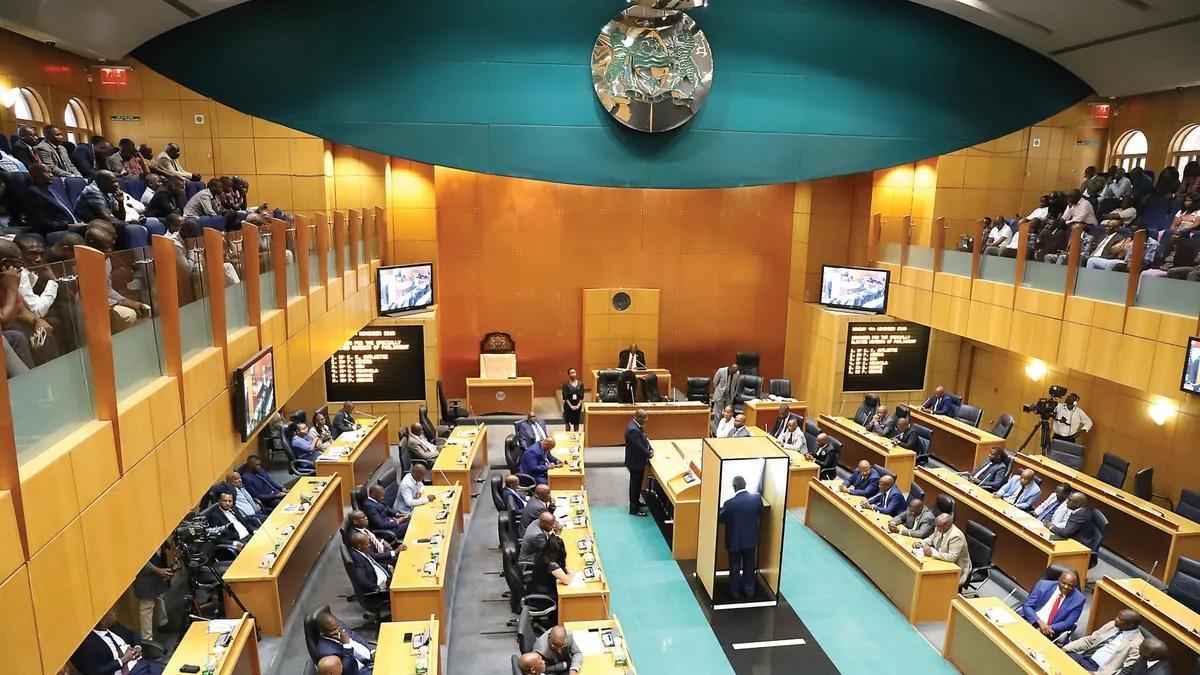Africa-Press – Botswana. The government is committed toward increasing Botswana’s productivity and competitiveness levels to improve the country’s economic and global performance.
Tabling a motion before Parliament on Wednesday, that calls for adoption of the National Productivity and Competitiveness Policy, the Minister of Labour and Home Affairs, Major General Pius Mokgware said considering the role of productivity in economic growth, employment and improvement in livelihoods, having the policy in place was critical to the country’s development agenda. “So, we have come up with this particular policy, the strategy and the plan with clear timelines, which we have to achieve as a country in order to improve our levels of productivity and competitiveness,” he said.
The Policy, he said was a progressive way of addressing issues of productivity and competitiveness in the country. He expressed concern that currently the country did not have a policy that addressed productivity and competitiveness issues.
Therefore, he said the policy aimed at positioning the country’s productivity and competitiveness agenda as central to the national development agenda, the first of its kind.
“The current productivity performance, across Botswana, is the same as the previous one, because the sectors of the economy are unsatisfactory. It is regarded to be at negative 0.44 per cent, hence the need for a more organised way of addressing this challenge,” he said.
To further ensure a collaborative and holistic approach to addressing the challenge, he said the policy would provide a platform for engagement with all stakeholders.
“Multiple reports by different entities, including the World Bank, Botswana National Productivity Centre, Botswana Institute for Development Policy and Analysis, World Economic Forum and the Institute of Management Development have all shown a declining trend in Botswana’s productivity and competitiveness performance,” he said.
Besides the declining performance, the minister said the reports also noted issues around poor work ethic and unavailability of government policy framework.
Therefore, once adopted, he said the policy would provide a framework for raising the country’s productivity levels and competitiveness performance in a deliberate and structured approach.
Furthermore, he said the policy would also provide for establishment of formal structures for accountability in implementation of the productivity agenda.
“It is also worth noting that the policy is in line with Botswana’s commitment to a static declaration on productivity, the Pan-African Productivity Association and the African Union Declaration on Employment, Poverty Eradication and Inclusive Development in Africa, which underscores the need for productivity improvement across the continent through development of relevant policies,” added the minister.
In terms of its structure, he explained that the first part of the policy contained the four-way acknowledgement, where the ministry acknowledged where it might had collected information from, as well as definitions of terms and executive summary.
Part two of the policy, he said outlined the introduction and approach to developing the policy, whilst the third and fourth parts provided the country’s philosophy on productivity and competitiveness and situational analysis. “Part five, six and seven, contains the objectives of the policy, institutional framework and monitoring and evaluation.
Lastly, the policy strategy is presented for purposes of operationalisation and it provides targets, timelines and actions that will be carried out as part of the implementation of this policy,” he added.
For More News And Analysis About Botswana Follow Africa-Press






